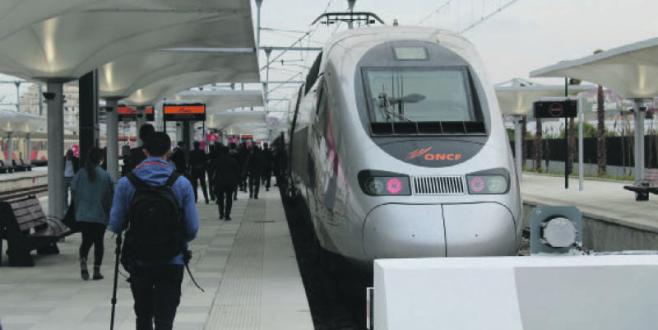Xommitted to environmental preservation and decarbonization as part of its Sustainable Development (SD) project, hte Moroccan National Railways Office (ONCF) has recently released its carbon footprint report for 2023, highlighting a substantial decrease in its carbon emissions. The ONCF compiled this report in line with universal standards, as stated in an official press release.
Despite a notable increase in train travel due to its undeniable benefits for the community, the 2023 report shows a significant reduction in ONCF’s carbon footprint compared to 2022. Specifically, there was a 20% reduction in greenhouse gas (GHG) emissions, amounting to approximately 297,000 tons of CO₂ equivalent (eq CO₂), down from 371,000 tons. Of these emissions, about 28% are exogenous, directly related to upstream and downstream travel activities.
The report also notes a reduction in the carbon intensity of passenger travel, now at 13.02 g CO₂ per kilometer per passenger, a 7.83 g CO₂ decrease. This is particularly significant given that trains produce nine times less CO₂ per person compared to cars. For freight transport, the carbon intensity dropped by 5.38 g CO₂, resulting in only 23.37 g CO₂ per kilometer per ton for the 17 million tons transported. This reduction in CO₂ emissions (74,000 tons eq CO₂) is equivalent to the daily emissions of 4,740 cars on the Casablanca-Rabat highway, a year’s heating for 10,900 households, or the CO₂ absorption of 2,105,200 trees.
The ONCF attributes these achievements to a strong commitment to energy transition (with 90% of electric trains running on green energy), efficient resource management, enhanced operational excellence, innovative service offerings, and the development of intermodal transport systems. Additionally, the implementation of eco-driving and eco-design systems, the use of photovoltaic energy in stations and buildings, optimization of waste production and treatment processes, and adherence to circular economy principles have all contributed to these results. The ONCF has also obtained ISO 14001 and 50001 certifications for several sites, organized training and awareness programs, conducted impact studies for major projects, issued green bonds, and developed partnerships with specialized organizations.
The ONCF’s dedication to ecological transition and sustainable mobility aligns with the Royal Vision, which places sustainable development at the core of societal projects. This commitment underscores the ONCF’s ambition to strengthen the eco-responsible DNA of rail transport as the backbone of sustainable mobility, serving socio-economic prosperity and future generations.
Furthermore, the ONCF reiterates its commitment to continuously improving its carbon footprint with the goal of achieving carbon neutrality by 2035. The train, recognized for its eco-friendly travel, contributes only 0.47% of Morocco’s total GHG emissions and 2.6% of the transport sector’s emissions, solidifying its key role in passenger and freight mobility.





